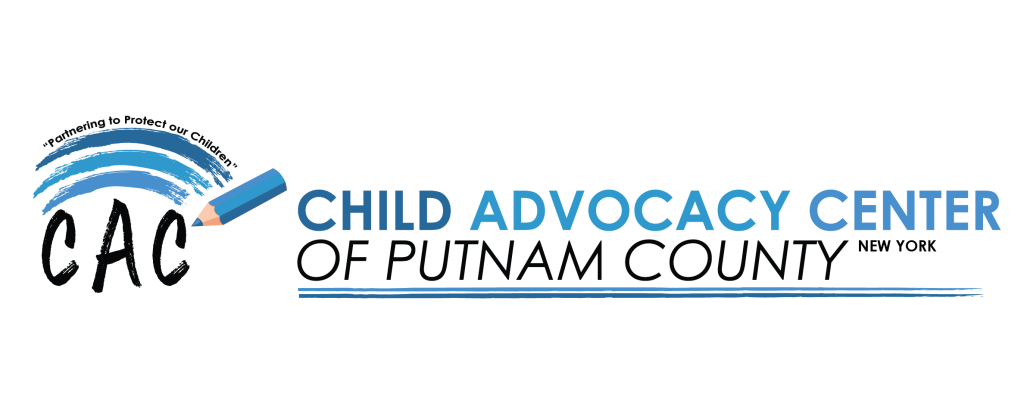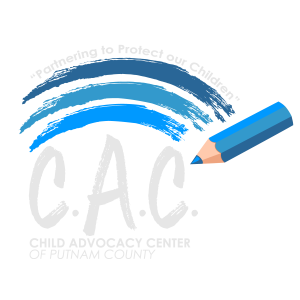REPORTING ABUSE
What is needed to make a report?
- Reasonable cause to suspect child abuse means that based on rational observations, professional training, and experience, you suspect a parent, guardian, or other person 18 years or older who is responsible for the care of a child is harming or placing a child in imminent danger or harm.
Where do I call to make a report?
- The Mandated Reporter State Central Register (SCR) is a 24/7 child abuse hotline. The timeliness of your call is vital to the timeliness of intervention by the local department of social services’ Child Protective Services (CPS) unit. A call must be made to the SCR hotline when a mandated reporter suspects a parent or other caregiver (e.g. clergy, coach, teacher) is responsible for the maltreatment, physical, and/or sexual abuse of a child or knowingly allows someone to inflict such harm on a child.
- If the person who is responsible for the maltreatment, physical, and/or sexual abuse of a child is NOT the parent or person legally responsible for the child’s care, contact your local law enforcement agency.
How do I make a report?
- When you call the Child Abuse Hotline to report suspected abuse, you will speak with a child abuse expert who will walk you through the reporting process. You will be encouraged to leave your name and telephone number; all sources of a child abuse report remain confidential.
- The child abuse expert will ask you a series of questions about your suspicion of child abuse. Below is a list of helpful information to provide when making a report:
- Child’s name, age, address
- Name or names of parents or guardians
- Type of abuse, name of the person committing the abuse, and their relation to the child
- There may be times where you have very little information on which to base your suspicion on abuse or maltreatment, but this should not prevent you from calling the SCR.
What else is important to know before calling in a report?
- Someone will answer your call 24 hours a day. The information you provide is confidential and you will remain anonymous. If a child is in immediate danger, always call 911.
- Abuse comes in many different forms such as sexual abuse, physical abuse, emotional abuse, and neglect. These signs by themselves may not be conclusive evidence that a child is being abused or neglected, but serve as a guide to help identify abuse and neglect when it is present.
- Signs of Child Neglect:
- Child Neglect is the willful or non-willful failure to provide for a child’s basic needs such as adequate food, clothing, shelter, medical care, education, or proper supervision that impairs or risks impairment of a child’s health or well-being.
- Malnourishment or inadequate nutrition
- Begging, stealing, or hoarding food
- Frequent poor hygiene including matted hair, dirty skin, severe body odor, etc.
- Torn and/or dirty clothes
- Unattended physical or medical problems
- Child states there is no caretaker at home
- Distended stomach, emaciated
- Frequent absence or tardiness from school
- Regularly displays fatigue or listlessness or falls asleep in class
- Self-destructive behavior
- Extreme loneliness and need for affection
- Child Neglect is the willful or non-willful failure to provide for a child’s basic needs such as adequate food, clothing, shelter, medical care, education, or proper supervision that impairs or risks impairment of a child’s health or well-being.
- Signs of Child Sexual Abuse:
- Child Sexual Abuse refers to any sexual act with a child by an adult or another child of any age. It includes, but is not limited to, forcing or encouraging a child to engage in sexual activity, fondling or rubbing the child’s genitals, penetration, rape, sodomy, indecent exposure, voyeurism, or using the child for prostitution or for the production of pornographic materials.
- Pain, swelling, itching, or bleeding in genital or anal areas
- Difficulty and/or pain when sitting or walking
- Excessive seductiveness
- Age-inappropriate sex play
- Premature understanding of sex or age-inappropriate sexual knowledge
- Display age-inappropriate behaviors with toys, themselves, or others
- Role reversal, overly concerned for siblings
- Significant weight change
- Suicide attempts (especially adolescents)
- Sleep disturbances or nightmares
- Depression
- Unusual aggression
- Interest or avoidance of all things of a sexual nature
- Threatened by physical contact of closeness
- Extreme fear of being alone with certain children or adults
- Sexual victimization of other children
- Major changes in normal mood or behavior
- Child Sexual Abuse refers to any sexual act with a child by an adult or another child of any age. It includes, but is not limited to, forcing or encouraging a child to engage in sexual activity, fondling or rubbing the child’s genitals, penetration, rape, sodomy, indecent exposure, voyeurism, or using the child for prostitution or for the production of pornographic materials.
- Signs of Child Physical Abuse:
- Child Physical Abuse is intentional injury inflicted upon a child or the use of force resulting in bodily injury, pain or impairment, brain trauma, or even death. It may include, but is not limited to, severe shaking, beating, slapping, punching, kicking, burning, or improper physical restraint.
- Frequent unexplained injuries and/or when the child or parent cannot adequately explain injury causes such as: bruises, cuts, lacerations, black eyes, fractures, burns
- Burns or bruises in an unusual pattern
- Lack of reaction to pain
- Injuries such as broken bones, bruises, burns, or welts in various stages of healing
- Injuries involving the face, backs of hands, buttocks, genital area, abdomen, back, or sides of body
- Frequent complaints of pain without obvious injury
- Complaints of soreness or discomfort when moving
- Fear of going home or seeing parents or caretaker
- Passive, withdrawn, emotionless behavior
- Aggressive, disruptive, and destructive or self-destructive behavior
- Signs of Child Emotional Abuse:
- Child Emotional Abuse is the willful infliction of mental or emotional anguish on a child by threat, humiliation, intimidation, or other abusive conduct. This may also occur when a parent fails to provide the understanding, warmth, attention, and supervision the child needs for healthy psychological growth. Emotional abuse may include, but is not limited to, frightening, isolating, belittling, insulting, rejecting, or constant criticism of a child with no evidence of love, support, or guidance.
- Speech disorders
- Delayed physical development
- Substance abuse
- Ulcers, asthma, severe allergies
- Habit disorders (sucking, rocking, biting)
- Extremes in behavior from overly aggressive to overly passive
- Difficulty in school
- Failure to thrive
- Difficulty sleeping or insomnia
- Eating disorders
- Depression
- Suicide attempts
- Frequent lying
- Antisocial or destructive behaviors
- Delinquent behaviors (especially adolescents)
- Child Emotional Abuse is the willful infliction of mental or emotional anguish on a child by threat, humiliation, intimidation, or other abusive conduct. This may also occur when a parent fails to provide the understanding, warmth, attention, and supervision the child needs for healthy psychological growth. Emotional abuse may include, but is not limited to, frightening, isolating, belittling, insulting, rejecting, or constant criticism of a child with no evidence of love, support, or guidance.
- Signs of Child Exploitation:
- Is under 18 years old and performs commercial sex acts
- Is excessively monitored or controlled by parents, a supposed guardian, or older partner or “sponsor” who claims to provide for their upbringing and needs or who insists on speaking for them or being present at all times
- Detached or (suddenly) isolated from a majority of family members and friends
- Is unable to give answers about their schedules or living and work locations/conditions; appears to possibly work and live in the same building or location
- Has numerous inconsistencies in his/her story; contradictory personal information (age, place of birth, family life)
- Has excessive security measures at his/her home or work (i.e. security cameras, boarded or covered windows); constant traffic of men at his/her home or work location
- Noticeable change in dress, jewelry, hair, or nails without an explainable source of income
- Shows signs of physical or sexual abuse (bruises, cuts, burns, submissiveness, jumpy, malnourishment); appears fearful, anxious, depressed, overly submissive, and avoids eye contact
- Suffers from substance abuse problems (alcohol and/or drugs), an array of other psychological disorders, sexually transmitted diseases, or chronic illnesses
- Carries multiple hotel key cards, lots of money, sharp objects (weapons)
- Sudden presence of an older boyfriend
- Tattoo with a name that is not their own; or that he/she is reluctant to explain
- Child Physical Abuse is intentional injury inflicted upon a child or the use of force resulting in bodily injury, pain or impairment, brain trauma, or even death. It may include, but is not limited to, severe shaking, beating, slapping, punching, kicking, burning, or improper physical restraint.
HANDLING DISCLOSURES OF ABUSE
Believe the child
- Do not express disbelief about the child’s story. Abusers usually tell children that nobody will believe them if they report it.
Remain calm
- An adult’s reaction and response will impact the child’s ability to tell what happened. Try not to display shock or disapproval.
Talk to the child in a safe and private place
- Avoid talking to the child in a place where there is no privacy or in an overwhelming group setting.
- Use language the child understands and do not criticize the child’s use of words. Ask the child to clarify language you do not understand.
Assure the child that the abuse is not their fault
- Abusers often tell their victims it was their fault that the abuse happened.
Do not give promises or false hopes
- Avoid telling the child that everything will be okay, or promise that you will not tell anybody.
- Let the child know you will do your best to protect and support them.
Report to authorities
- A child’s safety is the utmost concern.
- Your job is to collect minimal facts to make a report. Do not conduct your own interview. We have extensively trained forensic interviewers at the CAC to speak with children about the abuse.
Don’t probe or press for answers a child is unwilling to give


